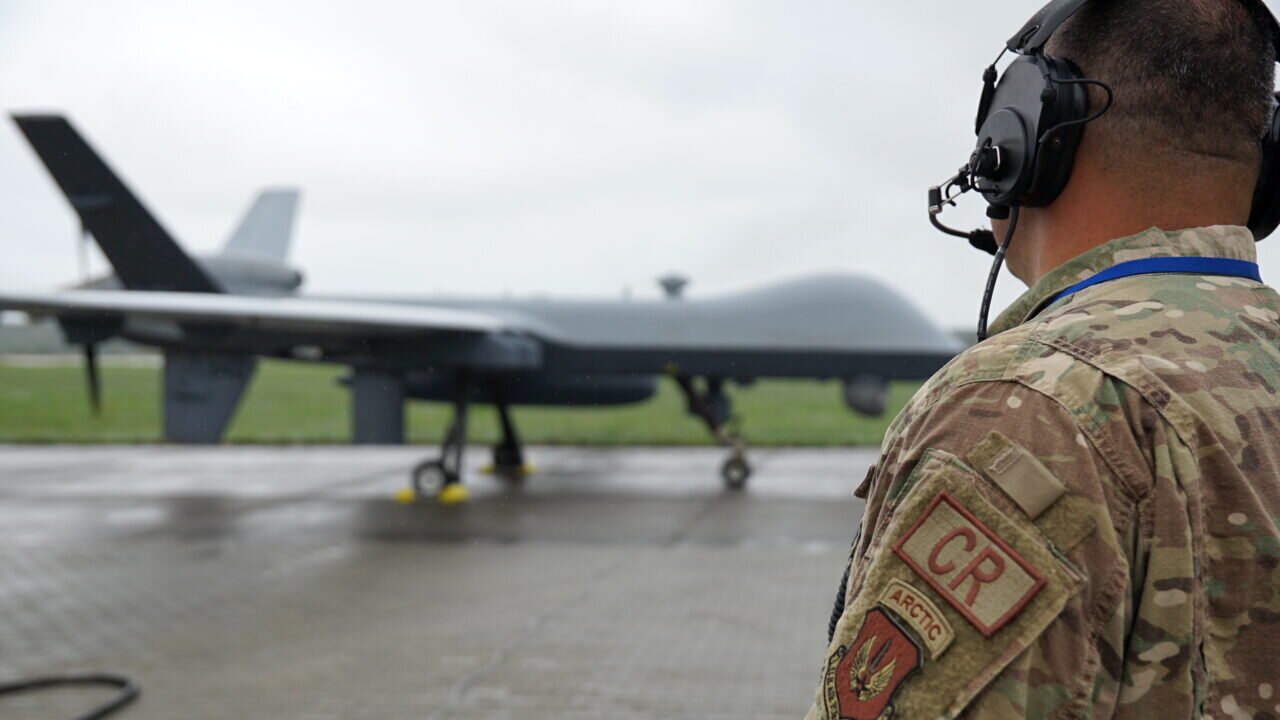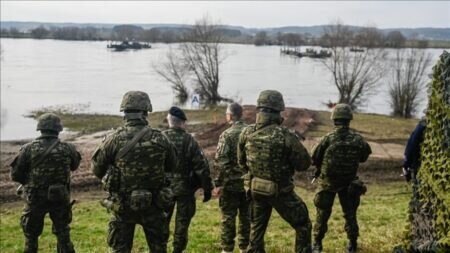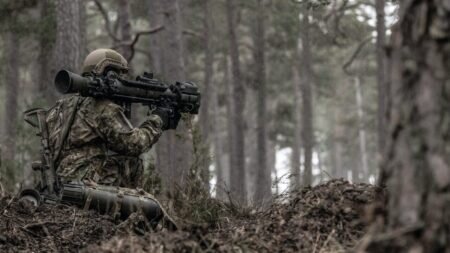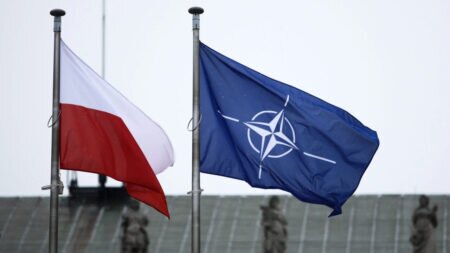The U.S. Air Forces in Europe and Air Forces Africa achieved a significant technological proof of concept for the MQ-9A Reaper’s Satellite Launch and Recovery Package, or SLR-P, at the 12th Unmanned Aerial Vehicle Air Base in Mirosławiec.
While various iterations of the concept have surfaced in different contexts, the SLR-P offers a compact, "wallet-sized" innovation poised to launch and recover the MQ-9A at strategic theater locations situated in some of the most rugged, remote outposts in Europe. This marks a departure from conventional practices that necessitated returning to home stations for basic level maintenance.
“We live in a volatile, uncertain, complex and ambiguous world, which means it takes an innovative and motivated group of people – like what you see here – to influence change and propel us into the future,” said Maj. Philip West, USAFE-AFAFRICA project lead. “With this technology, we’re putting the ‘A’ in ‘ACE’ [Agile Combat Employment] for the MQ-9A.”
Tailored specifically for the European and African theaters, the SLR-P consists of a small, mobile container with an inventory list finely tuned to address the unique operational requirements and environmental nuances of each specific region. The container can be retrofitted with its own wheels to be towed or be carried by any means of available transportation and is designed to be highly mobile.
One of the most dramatic impacts of this concept is to reduce the “boots on the ground” needed to operate and maintain precision aircraft. Where traditional remotely piloted operations required teams of 30 to 150 personnel, the SLR-P can execute with a lean crew of just eight multi-capable Airmen.
This lean crew of multiple capable Airmen came from USAFE-AFAFRICA’s 435th Contingency Response Group.
"Empowering multi-capable Airmen is what we do every day," said Col. Robert Rayner, 435th CRG commander. "The creation of the CRG 25 years ago aimed to extend airpower beyond our main bases. While our primary mission is supporting mobility operations, we’ve adapted our capabilities to respond to what the Air Force, and specifically what USAFE, needs.”
“Today, we're launching and recovering MQ-9As, but tomorrow it could be F-16s, and the next day, C-17s. Whatever the requirement, the 435th CRG remains light, lean and lethal to support,” he added.
The SLR-P’s integration with satellite technology also ushers in a new era of connectivity and maintenance efficiency. This capability facilitates rapid power-up of the MQ-9A and seamless satellite link establishment, minimizing pre-mission preparations.
By simplifying maintenance functions, the SLR-P allows the maintenance team to focus solely on essential tasks, leading to reduced downtime and heightened mission readiness.
This successful proof of concept not only marks the emergence of a new era in remotely piloted operations, but it also highlights the steadfast dedication of both the U.S. and Poland to shared security goals and technological progress.
"Hosting this first-ever proof of concept underscores Poland’s commitment to protecting not only Polish sovereignty but also fulfilling its obligation as a pivotal member of the NATO alliance,” said Col. Marcin Szubiński, Polish Air Force’s 12th UAV Air Base commander. “We are proud to contribute to testing this capability, building on our five-year history of implementing cutting-edge ISR technologies within EU airspace by prioritizing interoperability with our NATO allies while refining procedures and capabilities as needed.”
This proof of concept notably commenced amidst challenging weather conditions. Under typical circumstances, the mission for the day might have been canceled; however, the weather in Poland proved to be favorable for testing the system’s resilience, prompting the team to make a pivotal choice – executing a weather diversion to this new field or returning the MQ-9A back to its home station.
Airmen stationed with the Pennsylvania Air National Guard undertook a task unprecedented at this airfield, achieving a milestone that holds immense significance. In the process, they officially designated this location as a future alternate launch site, particularly in periods of adverse weather.
Poland now stands as destination for America’s most powerful, capable aircraft, ready to serve as an alternate launch location during times of inclement weather. This development further emphasizes the adaptability and resilience that characterize this transformative proof of concept.









